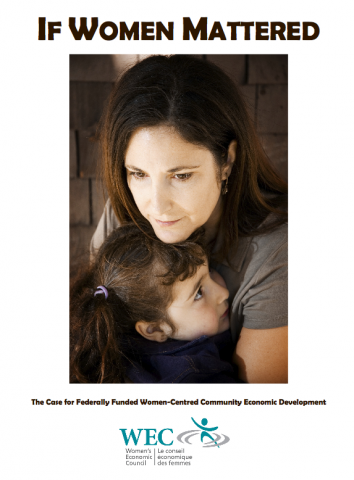We discovered that women continue to face systemic wage discrimination and their unequal domestic responsibilities continue to limit their employment options. Because governments and employers have failed to address these realities, women are left economically vulnerable, forced to make difficult personal and economic choices.
The absence of family-friendly policies leaves women at an incredible economic disadvantage. In order to meet their domestic responsibilities, many women choose to work in part-time, temporary, or contract jobs, or choose self-employment. All of these options pay less and are less secure than full-time work. Even when women do work full-time—despite being, on average, more educated than men—they earn less. On average, women who work full-time earn just 71.4% of what men earn.
Women-centred CED programs typically combine practical economic support, pre-employment training, personal development, and other services such as business development and mentoring. These interventions are specifically designed to help low-income women address how systemic barriers affect their economic security. However, as this research demonstrates, there is little government support for these initiatives.
